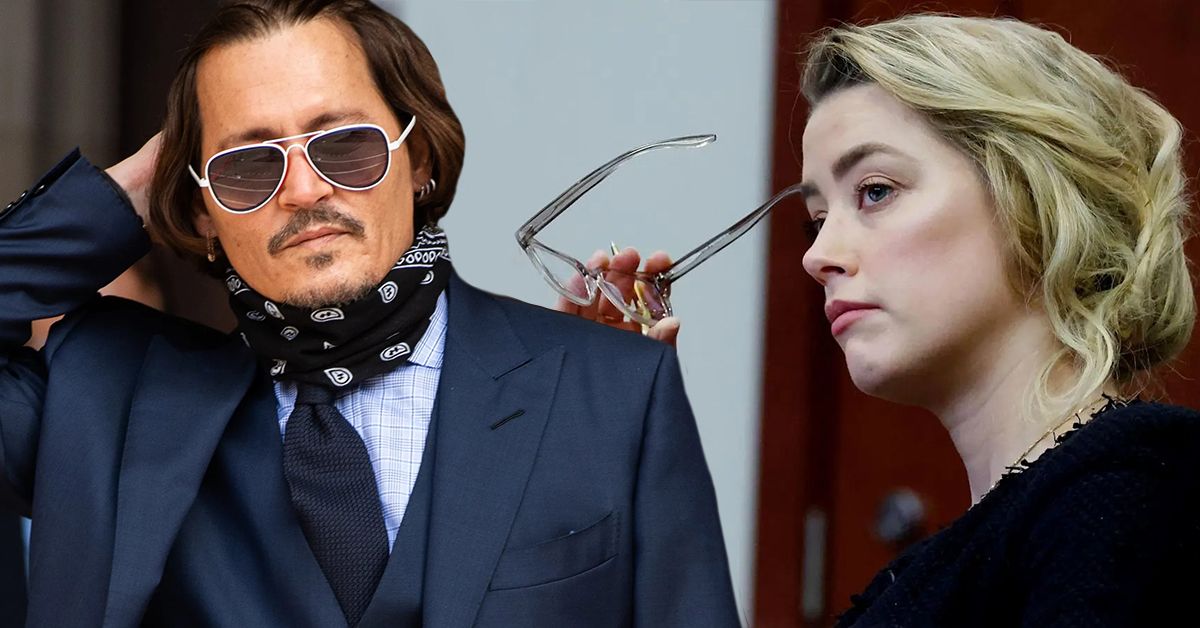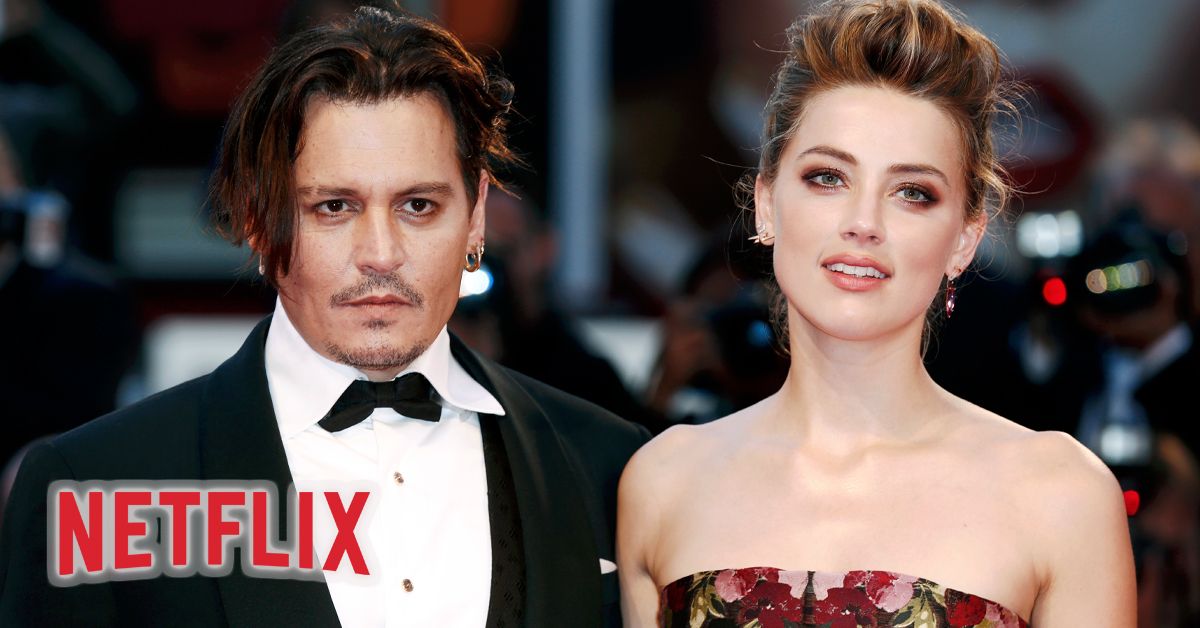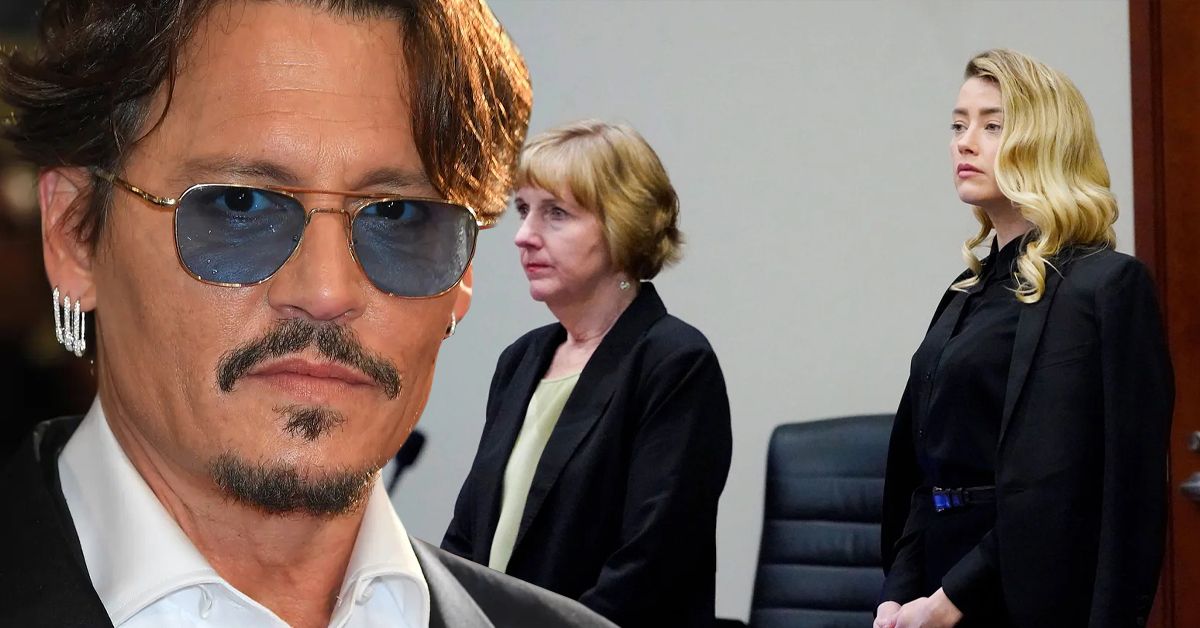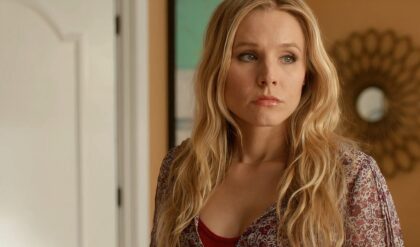The defamation trial between Johnny Depp and Amber Heard will go down the pop culture history. It created an intense buzz on the internet due to the courtroom drama and the controversial information that came to light.
The Netflix documentary, Depp v Heard shed light on how this trial turned into a media sensation. The three-episode series recounts the events of the six-week defamation trial and its impact on the current public perception. It skillfully weaves together courtroom footage with reactions from social media platforms. As Netflix explained, the trial marked a new era, often referred to as the first “trial by TikTok.”
The Netflix Docuseries Depp V Heard Did Not Include Interviews With Johnny Depp, Amber Heard, And Their Legal Team
The Netflix docuseries Depp v. Heard doesn’t follow the typical documentary formula. It doesn’t make grand promises of exclusive interviews or never-before-seen footage. Viewers won’t find any dramatic voice-overs, instead, it takes a minimalist approach and relies on the existing footage in social media.

The series primarily features the televised and live-streamed trial footage, interwoven with emotional online commentary and reactions from TikTok and YouTube users. It also includes insights from broadcast commentators and experts. This unconventional approach left some viewers puzzled, with one Twitter user asking, “Where are the experts? Where is the commentary?”
However, director Emma Cooper, a BAFTA-nominated filmmaker, intentionally avoided creating a documentary focused on determining a winner in the case. She was more interested in examining the discourse surrounding the trial and comparing it to the actual trial footage. The central focus was not on the claims made by Johnny Depp and Amber Heard, but rather on the public’s reactions to those claims.

Given the highly publicized and divisive nature of the subject, Cooper wasn’t surprised that both supporters and detractors of Depp and Heard had mixed feelings about the docuseries. She acknowledged the balance of criticism and support from both sides.
In an interview with Vanity Fair, Cooper emphasized that her intention from the outset was to create a thoughtful and engaging reflection of the events without relying on interviews or experts. She revealed that the series doesn’t take a definitive stance on whether the jury was influenced by Depp’s celebrity status or the online conversations surrounding the trial. Instead, it presents different perspectives, leaving the audience to form their own opinions.
Throughout the series, Cooper aimed to balance the portrayal of anti-Heard social media commentary with more balanced perspectives. “My intention, right from the start, was to make a cogent and interesting reflection of what happened without using interviews or experts,” she told Variety.
In essence, Cooper’s docuseries doesn’t describe a new phenomenon, it simply adapts to the changing medium while exploring a highly controversial and widely debated case.
How Did Johnny Depp, Amber Heard, And Their Legal Team React To The Netflix Documentary?
Unlike most documentaries, Depp v Heard takes a different approach by omitting interviews with experts, journalists, and any exclusive sit-downs with Johnny Depp, Amber Heard, or their respective legal teams. Instead, the series repurposed the live trial feed and heavily incorporated commentary from YouTube, TikTok, and archived media coverage of the trial.

Director Emma Cooper explained that she did reach out to the representatives of both Depp and Heard to inform them about the docuseries, but not to request interviews. “If the lawyers had really wanted to speak, then of course, I would have interviewed them. But I wouldn’t have done one without the other, by the way, because everything has to be balanced,” Cooper told Variety.
While the trial was one of the few #MeToo-related stories to enter a courtroom, Cooper believes that the global fascination with the case is primarily due to Johnny Depp’s celebrity status and does not necessarily reflect a larger statement about how society and the justice system treat women.
In an interview with Rolling Stone, Cooper stated that she sees the trial as somewhat distinct from the #MeToo movement. She views it as more of a Hollywood-centric trial, suggesting that it may not have significantly advanced or hindered the progress of #MeToo. Cooper acknowledged the complexity of the case, with allegations from both sides and concluded that it wasn’t strictly a #MeToo trial.
How Much Does Netflix Pay For Documentaries Like Johnny Depp And Amber Heard’s?
Netflix has become a formidable platform for documentaries, granting global audiences access to films they might otherwise miss.
The compensation filmmakers receive from Netflix varies based on several factors, including the documentary’s budget and whether it’s independently produced or backed by a major studio. According to IMAFF, as a general guideline, Netflix typically pays documentary creators an amount ranging from $1 million to $3 million per title.
While this sum might appear modest in comparison to budgets for other forms of programming, it remains a significant revenue stream for filmmakers seeking exposure for their work. Furthermore, due to Netflix’s stringent selection criteria for documentaries, those fortunate enough to secure a spot often enjoy more lucrative compensation than they might have received through conventional movie distributors or broadcast networks.
Netflix operates on a subscription-based revenue model, granting subscribers access to its extensive collection of TV shows, films, and documentaries.
In general, Netflix compensates the production company that holds the rights to a particular film or show by paying a licensing fee. The specific amount of this fee can vary considerably, contingent upon several factors. These factors include the title’s popularity and whether it has previously been released in other regions around the world.
If a documentary has already enjoyed successful releases in various global markets, Netflix may opt to offer a more substantial payment for it compared to a documentary that hasn’t been previously showcased to audiences elsewhere.
The Depp v Heard docuseries was initially launched in the UK by Channel 4 and is also accessible on YouTube. This represents Channel 4’s second collaboration with Netflix, following the acquisition of the series Five-Star Chef, which was the first to be acquired by Netflix from Channel 4.





